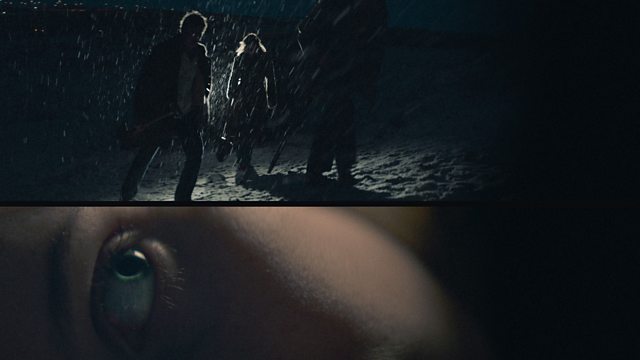
Out of Thin Air: Murder in Iceland
A Storyville documentary about the biggest-ever criminal investigation in Iceland's history, exploring one of the most shocking miscarriages of justice Europe has ever witnessed.
In 1974, two men vanished several months apart. Iceland, with a population of just over 200,000, was a close, tight-knit community where everyone knew everyone, but the police got nowhere: there were no bodies, no witnesses and no forensic evidence. Then six suspects were arrested and confessed to the murders, many facing long, harsh sentences. It seemed like justice had been done, but nothing could be further from the truth.
Forty years later, this notorious murder case was reopened when new evidence brought into question everything that had gone before. It became clear that the suspects had very quickly lost trust in their memories and were confused about their involvement in the crimes they had confessed to. The extreme police interrogation techniques were brought under intense scrutiny.
This tense, psychological thriller tells the true story of the biggest-ever criminal investigation in Iceland's history, exploring one of the most shocking miscarriages of justice Europe has ever witnessed.
Last on
More episodes
Previous
Director Dylan Howitt answers the Storyville Q&A

I loved the dark mystery - people disappearing without trace, and different versions of what happened to them that seemed to come out of nowhere. Ideas of memory and false memory were fascinating – could you be involved in something horrific and block it out, not remember it? Or have visual memories of something you hadn’t done?
Later, as I learnt more about Iceland in the 1970s that became very important too – people talked about the country then as so innocent, living in a kind of perfect isolation. This case came to symbolise a loss of innocence. It’s about mass hysteria, and memory and the vulnerabilities of the human mind. Plus, Iceland in the 1970s – what’s not to love?!
How long did it take to get the film off the ground?
12 months from shooting the trailer to going into production. 15 months of production and editing.
What were you most surprised to learn in the course of production?
It was a glimpse into how things work in a small society, where there are so few degrees of separation between people. Everyone seemed to have some kind of knowledge of, or connection to the case, there was a sense that this was a family affair. I certainly felt like the outsider.
Also the more I learnt about the case, the more elusive it became. It started to feel like a blank screen onto which people projected their own ideas, fears and prejudices.
Which documentary has most inspired you?
Too many to just choose one – off the top of my head I would name: Dreamcatcher (Kim Longinotto), Granito (Pamela Yates), What Remains (Steven Cantor), Man on Wire (James Marsh). For this film The Jinx and Central Park Five were useful references.
Favourite Website/blog?
Nofilmschool.
Person you’d most like to interview (living or dead?)
James Brown.
Best piece of filmmaking advice you’ve ever been given?
Not so much filmmaking advice, but I find this quote from Rainer Maria Rilke very useful when trying to solve intractable narrative issues like we had with this film. ‘Be patient toward all that is unsolved in your heart and try to love the questions themselves, like locked rooms…live the questions now and perhaps even without knowing it, you will live along some distant day into your answers’. Not sure I found any answers but the words were consoling, about just trusting a process.
Best piece of filmmaking equipment you can’t live without?
I’ll work with any kit, but I am pretty fond of my C300, and vintage Leitz lenses.
Most difficult access?
I negotiated an early interview with the 17th Karmapa who escaped Tibet in 1999, involving dealing with a lot of Byzantine Indian bureaucracy, mainly drinking tea in offices and watching cricket.
Best recent read?
‘Into the Woods’ by John Yorke.
Credits
| Role | Contributor |
|---|---|
| Director | Dylan Howitt |
| Producer | Andy Glynne |
| Producer | Margrét Jónasdóttir |
Broadcasts
- Mon 14 Aug 2017 22:00
- Wed 7 Apr 2021 00:00
- Sun 6 Feb 2022 00:40
Featured in...
![]()
Crime and Punishment
Documentaries reexamining landmark criminal cases.
![]()
Storyville
Amazing, shocking, inspiring and award-winning - the best in international documentaries.
![]()
Thought-provoking Global Stories
Learn more about the world we live in with these thought-provoking documentaries.
![]()
Documentary Films
Compelling stories from around the world - captured on camera.

